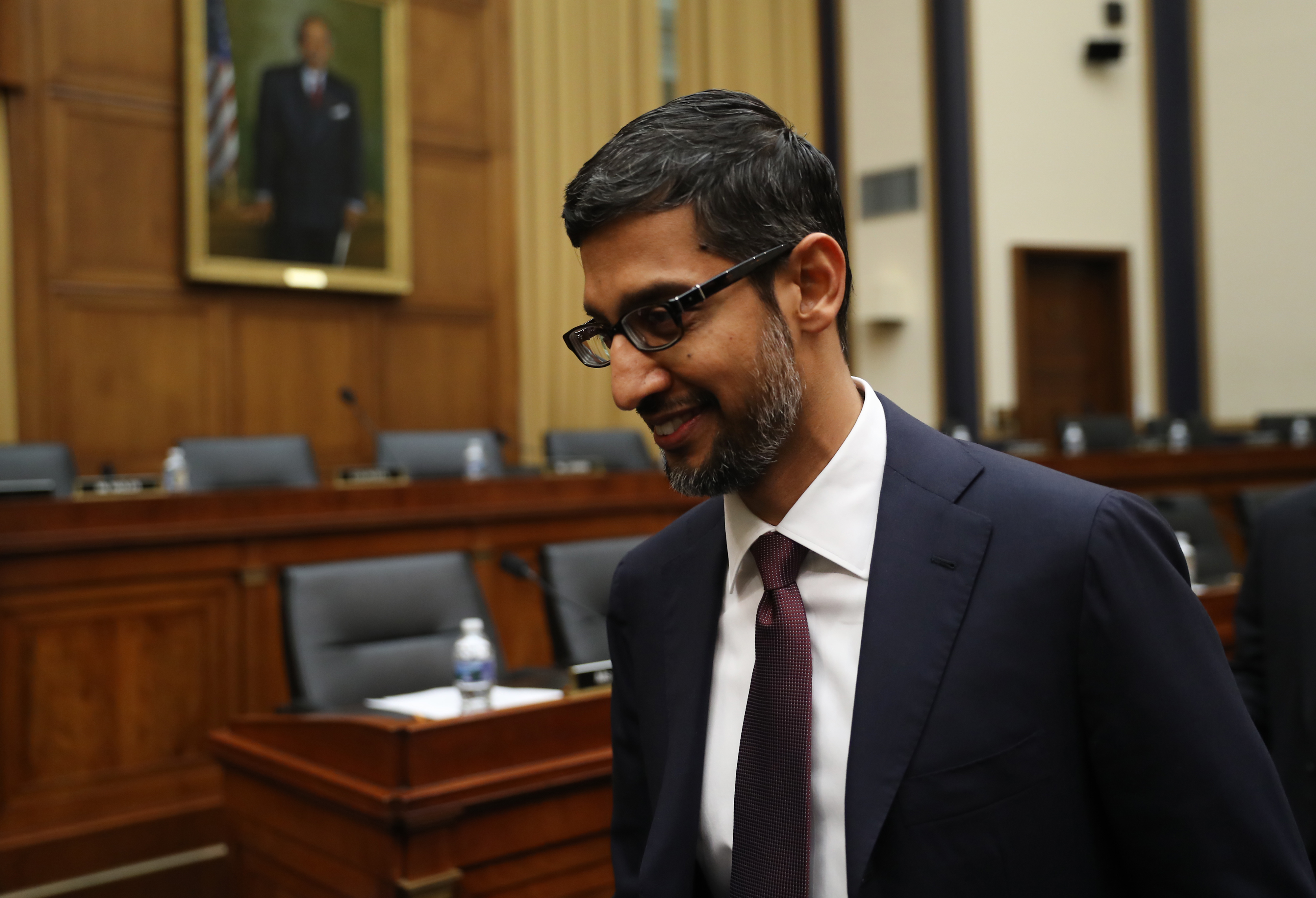
With Congress focused on political bias, Google’s CEO gets off easy
Google may have sidestepped the first few rounds of grill-a-tech-exec, but its CEO Sundar Pichai wound up in the hot seat on the Hill after all. Pichai appeared today, braving a three-and-a-half-hour hearing solo with no contestants to offload congressional ire onto.
To his recognition, Pichai play-act are you all right. Instead of adopting Facebook’s flavor of over-rehearsed trust and robot-like explanations, Pichai came across as human, very competent and reasonably compassionate. That demeanor restrain, even as Pichai evaded now and propagandized a handful of misrepresentations and mistruths there.
In a regular hearing, Pichai’s task would be tough, but this wasn’t a normal hearing. Pichai wasn’t called to Capitol Hill to testify on Google’s role in Russian disinformation, its contentious plan to re-enter China or recent report that Google+ uncovered private data. Rather, he was bidden to Washington as the last gasp of a Republican-led House Judiciary Committee hellbent on performing its own reverie with perceived political bias against conservatives.
The hearing, designation “Transparency& Accountability: Examining Google and its Data Collection, Use, and Filtering Practices” hewed closely to that aim in its mission to “examine potential bias” presumably perpetrated by the search giant to the detriment of right-leaning spokespeople. Over more than three hours of affidavit , no proof surfaced that Silicon Valley’s left-leaning paragons had polluted Google’s search algorithms, which shouldn’t come as a surprise. No substantial prove has surfaced indicating that conservatives are unfairly treated by Google to date, though that doesn’t impede many of the committee’s Republicans from treating those accusations as detail.
Unfortunately for them, perhaps , nothing of this flustered Google’s chief executive. Pichai patiently explained that Google was aware of many of these allegations from the right, but that its own investigations had turned up nothing of substance. He gently disputed the questionable methodologies behind study alleging to show evidence of Google’s bias.
“I lead this corporation without political bias and taken so that our commodities continue to operate that room, ” Pichai said. “To do otherwise would go against our core principles and our business fascinates .”
The partisan-fueled cable of questioning led to a eerie character dynamic in which Democrat on the committee on conferences pushed back on Republican talking tops, attacking Google instead of laying into the company on the myriad relevant issues of substance. For a political form ostensibly committed to holding strength to detail — and maintaining its regulatory strength in doing so — it was disappointing. Pichai chiefly worsened through their hands.
Some of the committee’s members even acknowledged most substantial questions — anti-competitive behaviour, Google’s position on China — before hop-skip back to the Republican-led committee’s agreed-upon throughline. Still, there used a few moments of lucidity.
When questioned point-blank by Rhode Island Rep. David Cicilline if Pichai would “rule out launching a tool for surveillance and censorship in China” during his tenure as CEO, Pichai sidestepped noticeably. Washington Rep. Pramila Jayapal cornered Pichai into a follow-up commitment on ending its forced arbitration rehearsals for publishes to go beyond sexual harassment. And a number of members of the committee pulped Pichai on Google’s invasive Android location-sharing practises in light of a recent New York Times report collecting the questions, so it’s good to see Congress uncomfortable with that knowledge even if some members of this specific committee still don’t know the basics of how tech tasks.
In spite of these luminous blots, Pichai got off easy. He managed to make it through more than three hours without any questioning about Google’s interest in providing engineering for armed lotions. And no one fairly pinned him down to all types of commitment around Android location sharing anxieties or Google’s inscrutable privacy plans, though that doesn’t come as a surprise. Under Democratic lead next term, the committee on conferences hinted that it would try again.
“I look forward next year to working with you on some of the very serious questions we face, ” Rep. Zoe Lofgren said. “It’s quite obvious bias against republican tones is not one of them.”
Tech execs, so insulated within big, layered corporations and cocooned in rich, are rarely if ever accountable, on a personal level, to much of anyone. The opportunity to press them with questions in real epoch is almost never yielded to members of the press. Regrettably, peculiarly right now, there are many, countless legitimate things to hold Google to account about that were not the assertion of today’s hearing.
It’s all the more disappointing then that Pichai’s time on the stand was largely expended.
Google CEO won’t rule out relaunching in China
Read more: feedproxy.google.com

